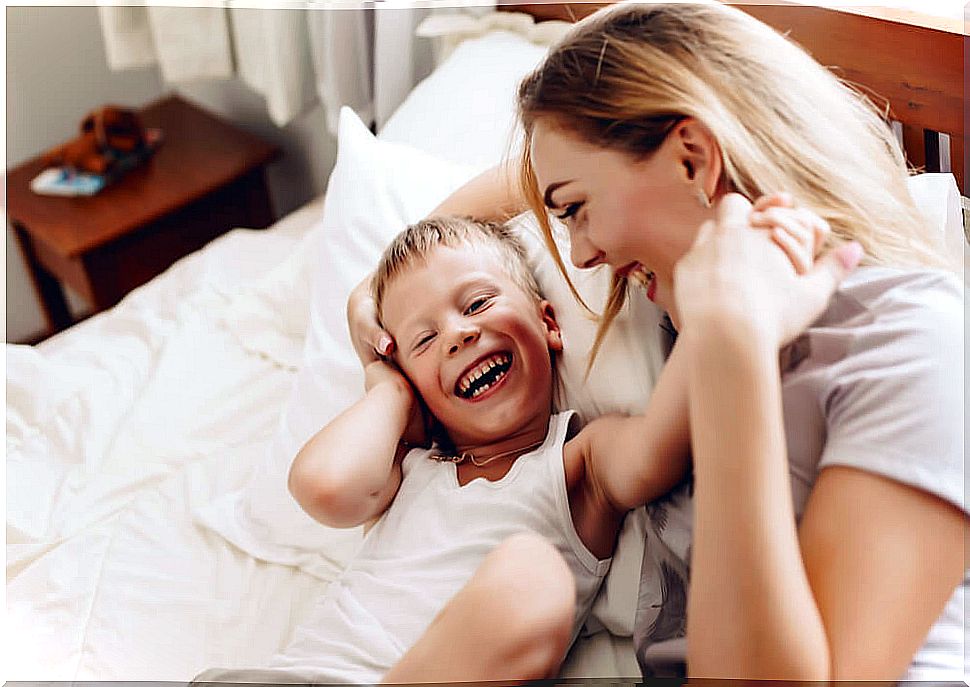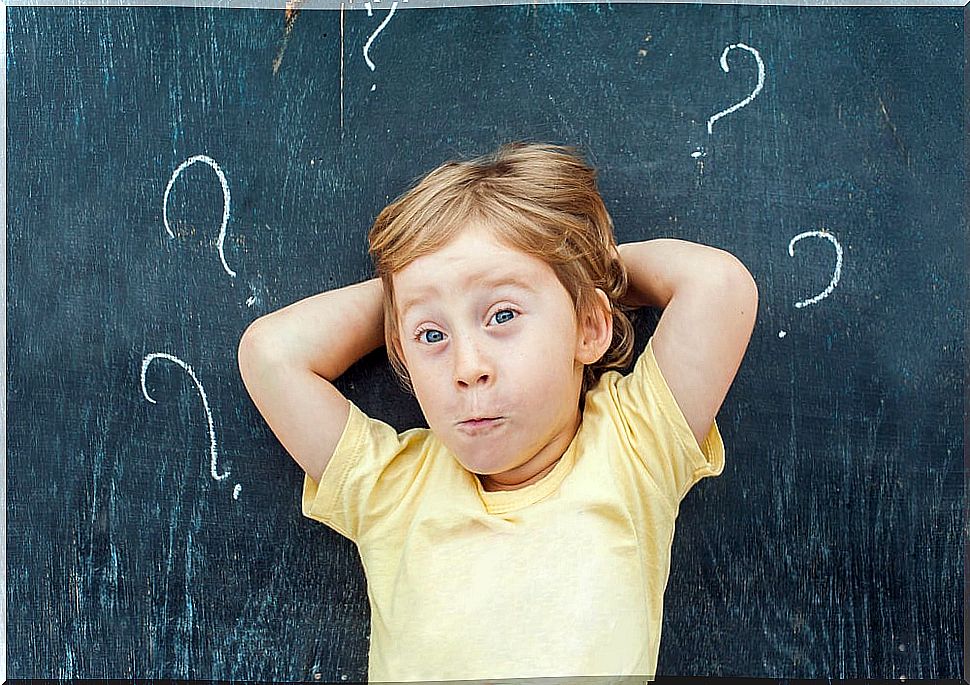Children Learn To Laugh At Their Parents
Children learn to laugh at their parents. To be more exact: they learn from their parents’ sense of humor, because smiling and laughing are natural behaviors of every human being.
Smiling is the baby’s first social behavior. A few days after being born, he already begins to sketch his first smiles, before the faces or the smiles of his parents.
Laughing is natural
Children laugh ten times more than adults. They laugh 300 to 400 times a day, while their parents (if they are very cheerful) will laugh about 100 times. Cheerful children are happy.
Babies laugh a lot before talking or walking. They start laughing at 2 or 3 months. Few babies don’t laugh until they are 10 months old, according to Caspar Addyman, a researcher at the University of London and leader of the team of scientists that created the first song designed to make babies laugh.

The sense of humor, on the other hand, is a long learning process that goes through different stages, according to the maturation of the child. When they are babies they imitate their parents, then they realize that there are funny situations that are forms of communication and approach towards others.
They learn to laugh in stages
In the book “Children who laugh! How to develop your child’s sense of humor ”, by academic Louis Franzini, children’s sense of humor evolves according to their age. It then outlines the following stages in the process of children learning to laugh:
From 0 to 3 years
Laughter is induced or provoked by tickling. The babies learn to laugh imitating generally parents. They make faces, they imitate what they find funny, they laugh out loud, hoping that the parents respond with laughter. It is called “pro social humor”, because it seeks social acceptance.
From the first year onwards, incongruities are his favorites. Saying that a cat flies and makes “peep, peep” will be a lot of fun for them. Not mastering the language, they use many gestures. They fool their parents out of sheer pleasure. Making your parents laugh is essential. You know what is fun and what is not.
At two years old, they begin to understand humor. They begin to understand when someone does something wrong with the intention of making people laugh and they respond by laughing.
4-7 years
Since they already understand the rules, the most fun is going against the rules. They laugh at jokes and riddles that don’t require overly logical or structured thinking and development.

Humor is a way of bonding in your school life. Children laugh at each other at the same things, as it means they belong to the same group of friends. They laugh just because they are in a good mood.
Exaggeration is the most successful humorous device at these ages. “I eat a million slices of pizza” is a very funny phrase for a school-age child. They do not yet understand sexual taboos, but they sense that there is something behind certain issues.
The absurd reasoning they carry out, which can be very logical according to their point of view, is a lot of fun for parents. A child who gets on a plane for the first time says: “I want to touch the clouds”, he thinks it seriously; but the parents will laugh out loud.
8 to 10 years
The structure of the jokes is complicated. Children understand (or think they understand) double meaning and ulterior motives. Sexuality is perceived as a taboo, which they find it very funny to break.
In these ages, jokes or eschatological facts (gas, belching and the like) gain popularity . Humor is used to challenge social rules or conventions that you know, to test the limits and to discover your personality. For example, when he writes on a school wall “it was not me” or “fool who reads this.”

Teasing appears, which can be very cruel, especially if it is against other children. It is the time when they must learn to laugh with others, not with others. Parents, rather than obsessing over repression, it is better to explain that if humor hurts other people it should be avoided.
11 to 12 years
Faced with the physical and visual humor of the early years, verbal humor begins to have more importance. Jokes, riddles, word games, and tongue twisters are typical of late childhood.
The gender difference is accentuated : boys take more initiative to tell jokes to impress, while girls are more willing to laugh. They learn to laugh in a different way.
Educate humor
Although as parents we do not understand the antics or the joke of our child, it is good not to discourage him. Children learn to laugh with their parents, and we find ourselves again with a sense of humor that we had forgotten. Children’s humor expresses joy and creativity.
Just as we love our children, let us celebrate their gestures, their antics, their jokes. It’s great to encourage them to create their own jokes and do fun things together. Laughter is an extraordinary way to enjoy family love and is good for your health.









